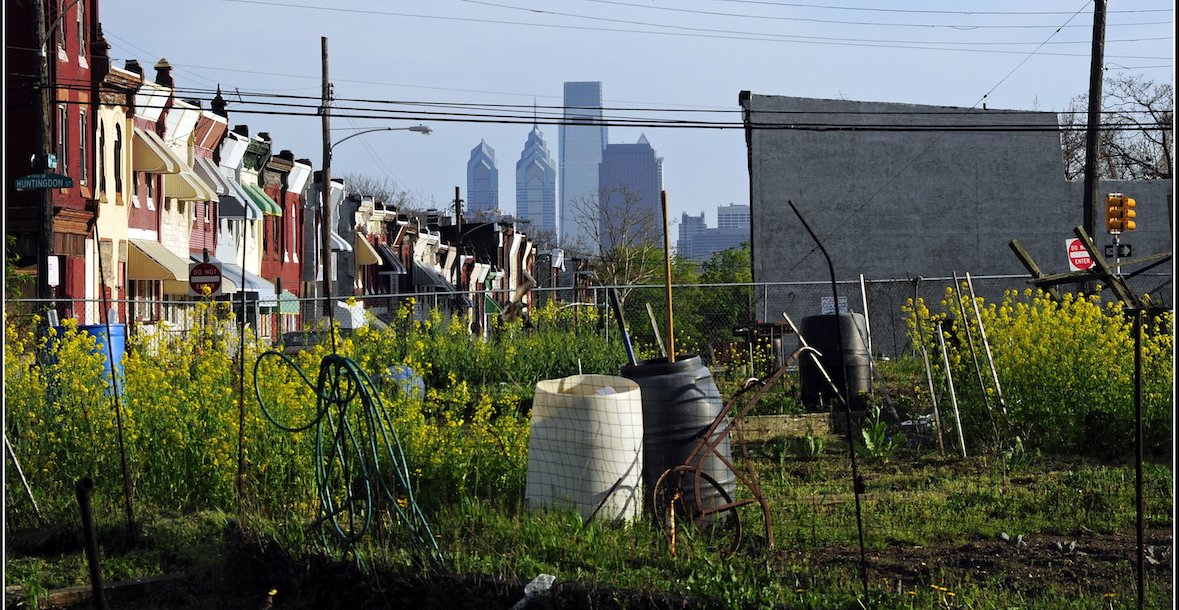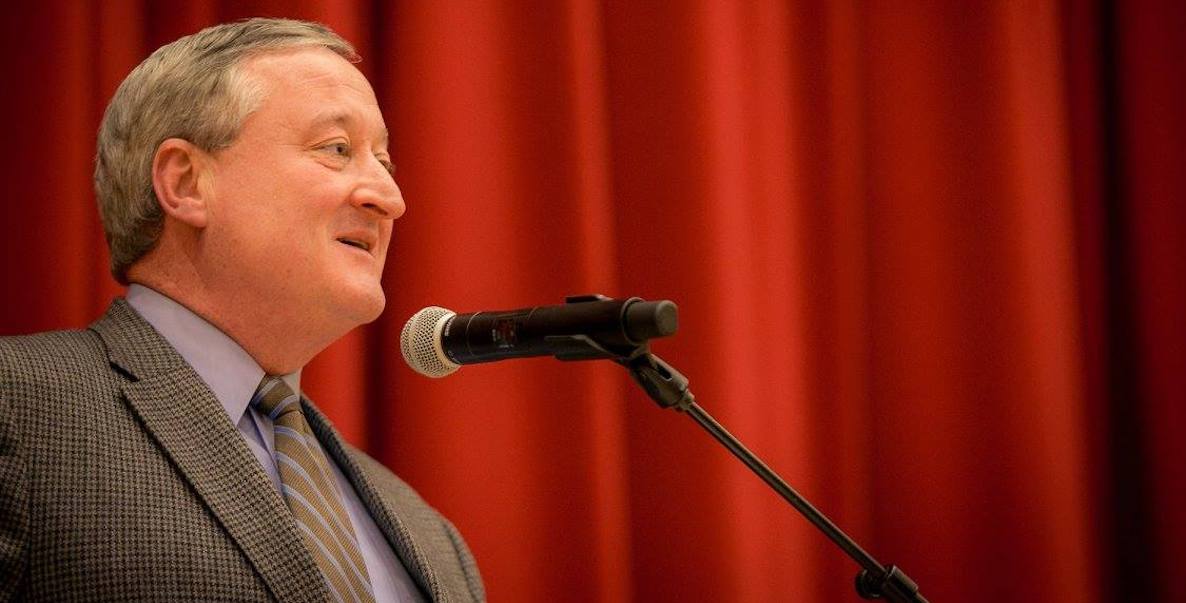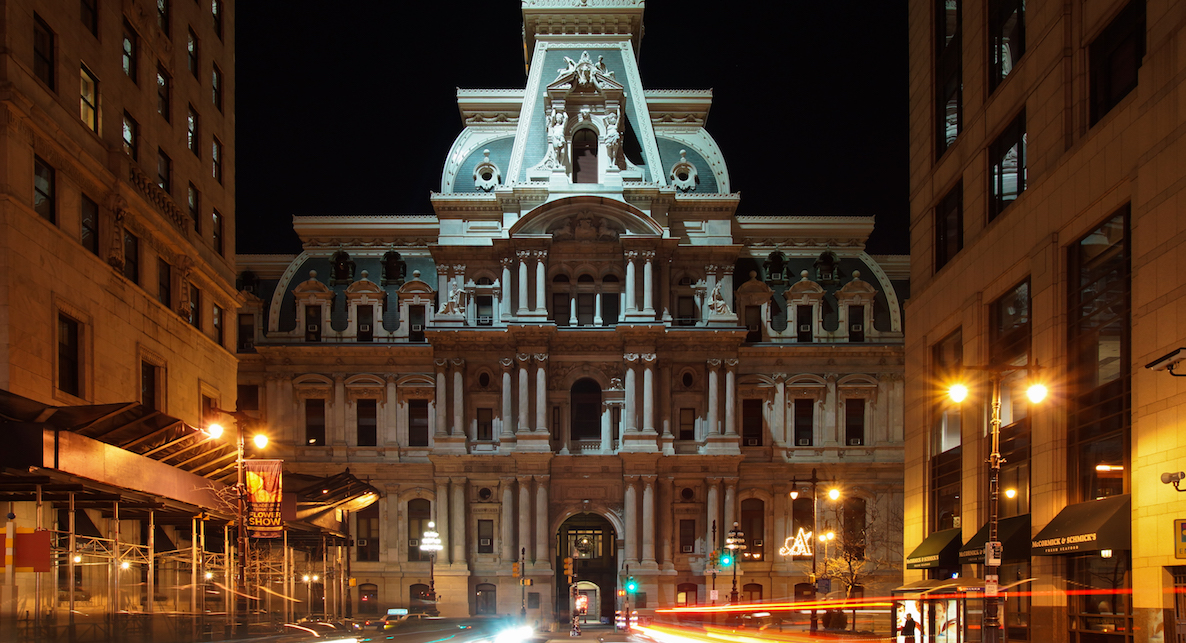As a native Philadelphian, I was really pulling for us to win the Amazon HQ2 Olympics. As a free-market feminist, I’d love to have the online behemoth—and other corporations, big and small—plant roots in the city I love.
But I agree with Congresswoman-elect Alexandria Ocasio-Cortez, a democratic socialist, and New York Senator Kirsten Gillibrand when they condemn taking money from working families to help line the pockets of the richest man and one of the richest companies on earth. That’s repugnant.
And it’s disgraceful that Gov. Wolf and officials from the poorest big city in America secretly groveled before Amazon CEO Jeff Bezos with $5.7 billion in public money to entice him to Philadelphia.
Wolf governs a state that gives out more corporate welfare dollars than any other state—about $800 million every year. What have taxpayers gotten in return? Not much. Pennsylvania ranks an abysmal 46th in job growth and 45th in personal income growth between 1991 and 2017.
The claim that such “incentives” will soften the blow of our state’s tax climate is a non-starter. That money isn’t an incentive; it’s taxpayer dollars given as special perks to politically-favored companies—perks not available to most of our home-grown businesses—and rightly so.
No business—big or small—should get special treatment from government.
And even if you don’t find corporate welfare an affront to fairness and good government, perhaps you’ll be persuaded by this: It doesn’t work.
![]()
And Wolf should have known it. He governs a state that gives out more corporate welfare dollars than any other state—about $800 million every year. Included in that total is $250 million sent to the horse racing industry and millions to finance sports stadiums.
What have taxpayers gotten in return? Not much. Pennsylvania ranks an abysmal 46th in job growth and 45th in personal income growth between 1991 and 2017.
Philadelphia needs to care about these statewide numbers, given we have the highest—and rising—deep-poverty rate of any major U.S. city. If corporate welfare worked, the facts would tell a different story.
Instead of throwing taxpayer dollars at wealthy corporations to offset our onerous tax climate, Pennsylvania should change its overall tax structure to better serve our more than 1 million existing businesses—and attract new ones.
State and local lawmakers must get control of their spending addiction. No more spend-first, tax-later state budgets. No business feels secure knowing it may be the next target of the annual Harrisburg scramble to pay for overspending.
Whether it’s our corner bodega, the local mechanic, or Yards Brewery, we should be as committed to creating a place of opportunity for “the little guy” as we are for global corporations. The former may not have Bezos’ wealth, but their plans to invest, expand, and create jobs are equally critical to our state.
Here’s how we should change our pitch to businesses looking to set up shop in Pennsylvania.
First, state and local lawmakers must get control of their spending addiction. No more spend-first, tax-later state budgets. No business feels secure knowing it may be the next target of the annual Harrisburg scramble to pay for overspending.
For example, in 2016, vape shops were hit with a 40 percent tax so lawmakers could fill a budget gap. Nearly 100 shops shut down as a result.
Next, let’s recognize that our 9.99 percent corporate tax rate—currently the third-highest in the country—puts us at a disadvantage and drives job creators to other states.
Lawmakers should lower rates, reduce the regulatory burden, and, yes, repeal Philadelphia’s soda tax, signaling that we are open for business. Oh, and get rid of the city wage tax once and for all so talented people aren’t penalized for working in the city.
![]()
Last, end corporate welfare. Forcing hard working Pennsylvanians to subsidize politically-favored businesses has failed to create economic growth. And wringing small businesses dry to fund their own competition is incredibly unfair.
But other states offer incentives—if we stop, they’ll outcompete us! That’s what my children say when they try to convince me they need the latest piece of technology to do well in school. Hardly. Why not attract businesses on our merits—with efficient infrastructure, talented workers, and sound public policy? Right now, we’re down to bribing billionaires—poorly, as it turns out.
We have to come to terms with this: Amazon and other job creators face a hostile business environment if they come to Philadelphia—one that puts them at a competitive disadvantage. That’s unfortunate, because we should be focusing our hostility where it belongs—on the Dallas Cowboys.
Jennifer Stefano, a Philadelphia native, is vice president for the Commonwealth Foundation, Pennsylvania’s free-market think tank.
Photo via Flickr





